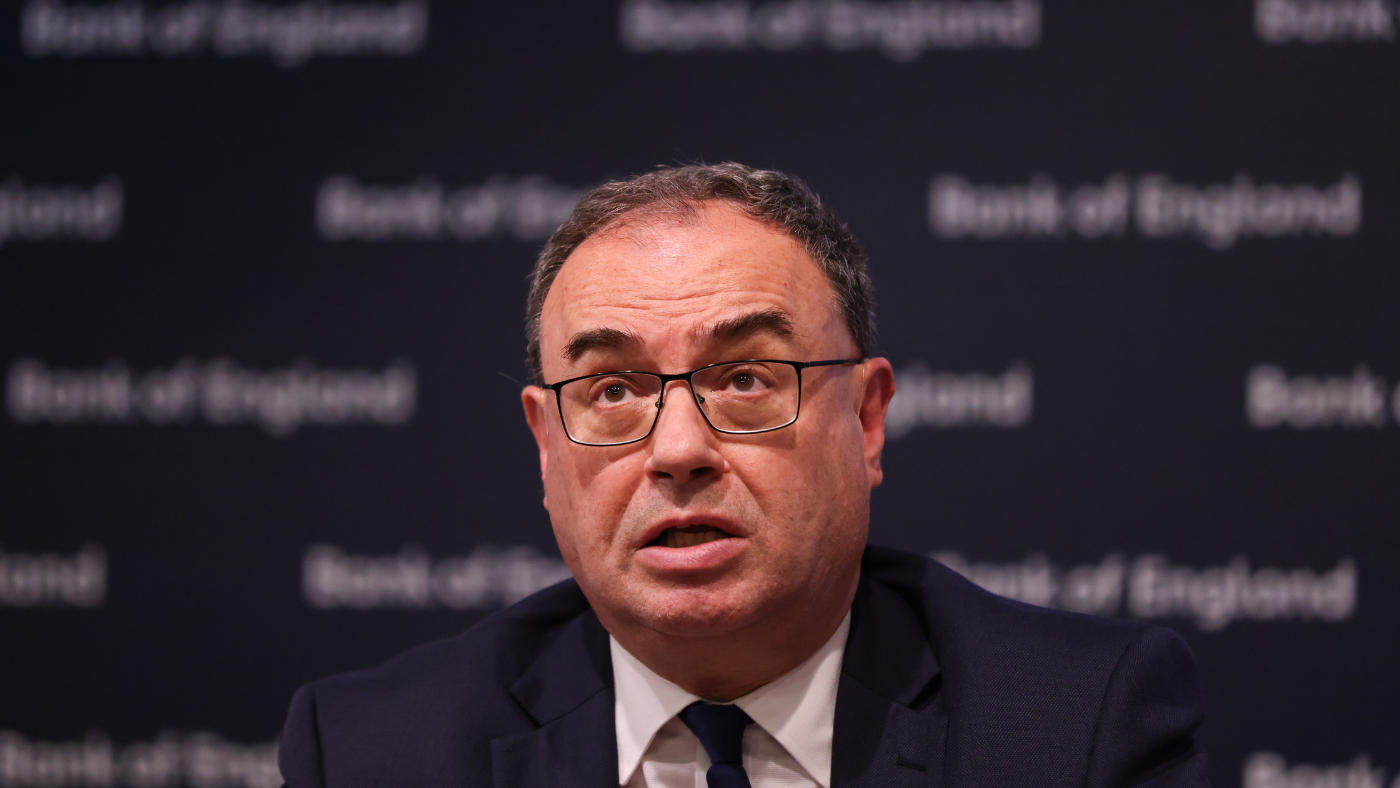Interest rates: more ‘trauma’ for households
Latest hike will cause ‘plenty of pain for borrowers’

A free daily email with the biggest news stories of the day – and the best features from TheWeek.com
You are now subscribed
Your newsletter sign-up was successful
“If it isn’t hurting it isn’t working.” That was the message from then-chancellor John Major in 1989 during a previous period when interest rate rises were used to tackle high inflation, said Larry Elliott in The Guardian.
And it was the message rammed home by the Bank of England last week as it announced a quarter-point rise in the base rate. It’s the 14th increase in a row and takes the rate to 5.25%, the highest level in 15 years.
What’s more, the “downbeat” statement by Andrew Bailey, the Bank’s governor, made clear that rates won’t be coming down any time soon, said The Times. This is certainly going to cause plenty of pain for borrowers.
The Week
Escape your echo chamber. Get the facts behind the news, plus analysis from multiple perspectives.

Sign up for The Week's Free Newsletters
From our morning news briefing to a weekly Good News Newsletter, get the best of The Week delivered directly to your inbox.
From our morning news briefing to a weekly Good News Newsletter, get the best of The Week delivered directly to your inbox.
Those on the 800,000 fixed-rate mortgages due to expire this year face a huge hike in monthly payments. In December 2021 the average rate for a two-year fix was 2.34%; it’s now 6.85%. “The expiry of 1.6 million fixed-rate mortgages next year will spell more trauma” for households.
‘Pain’ for a ‘shrinking group of mortgage holders’
It remains to be seen how effective the squeezing of borrowers will be in helping bring down inflation, said Eir Nolsøe in The Daily Telegraph.
Rate rises have less impact than they used to because many older people who bought when prices were relatively low now own their homes outright. Younger people, meanwhile, are increasingly unable to get on the property ladder at all.
The pain is thus being concentrated on a shrinking group of mortgage holders. They’ll have even less disposable cash, while mortgage-free oldies benefitting from higher saving rates have more to spend.
A free daily email with the biggest news stories of the day – and the best features from TheWeek.com
Higher borrowing costs are still expected to be a net drag on the economy, but the inflation-quelling effects may take a while to work.
Could hikes ‘kill the recovery’?
In the meantime, the Bank has little choice but to keep up the pressure, said Tom McTague on UnHerd. The UK’s rate of inflation fell to 7.9% in the year to June, but it’s still way above that of our peers. The Eurozone’s inflation rate in June was 5.5%, while America’s was just 3%.
“It is an open secret that, to get inflation under control, the Bank will likely have to keep hiking rates until the economy slips into recession.”
The economy is slowing down already, said Carsten Jung in The Guardian. Job vacancies have started to decline and “unemployment is ticking up”. Consumer confidence is falling, along with house prices.
The Bank of England must take care. Many critics have accused it of not acting quickly and urgently enough in the face of the emerging inflation threat, but there are signs that it may now be going too far in the other direction.
There’s a risk that, next year, we might be in a situation where the inflation problem has passed but further, unnecessary interest rate hikes have “killed the recovery”.
-
 The 8 best TV shows of the 1960s
The 8 best TV shows of the 1960sThe standout shows of this decade take viewers from outer space to the Wild West
-
 Microdramas are booming
Microdramas are boomingUnder the radar Scroll to watch a whole movie
-
 The Olympic timekeepers keeping the Games on track
The Olympic timekeepers keeping the Games on trackUnder the Radar Swiss watchmaking giant Omega has been at the finish line of every Olympic Games for nearly 100 years
-
 Currencies: Why Trump wants a weak dollar
Currencies: Why Trump wants a weak dollarFeature The dollar has fallen 12% since Trump took office
-
 Elon Musk’s starry mega-merger
Elon Musk’s starry mega-mergerTalking Point SpaceX founder is promising investors a rocket trip to the future – and a sprawling conglomerate to boot
-
 TikTok: New owners, same risks
TikTok: New owners, same risksFeature What are Larry Ellison’s plans for TikTok US?
-
 Will SpaceX, OpenAI and Anthropic make 2026 the year of mega tech listings?
Will SpaceX, OpenAI and Anthropic make 2026 the year of mega tech listings?In Depth SpaceX float may come as soon as this year, and would be the largest IPO in history
-
 Leadership: A conspicuous silence from CEOs
Leadership: A conspicuous silence from CEOsFeature CEOs were more vocal during Trump’s first term
-
 Ryanair/SpaceX: could Musk really buy the airline?
Ryanair/SpaceX: could Musk really buy the airline?Talking Point Irish budget carrier has become embroiled in unlikely feud with the world’s wealthiest man
-
 Powell: The Fed’s last hope?
Powell: The Fed’s last hope?Feature Federal Reserve Chairman Jerome Powell fights back against President Trump's claims
-
 The end for central bank independence?
The end for central bank independence?The Explainer Trump’s war on the US Federal Reserve comes at a moment of global weakening in central bank authority